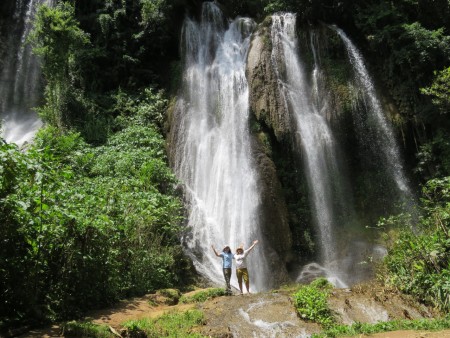
The BirdsCaribbean International Conferences, which take place every two years, are always enriching experiences for scientists, ornithologists, conservationists, students, teachers and bird enthusiasts from across the Caribbean. This year’s conference, which will take place in the beautiful Topes de Collantes region of southern Cuba from 13-17 July, 2017, promises to be no exception.
This year’s theme is “Celebrating Caribbean Diversity.” The organizers aim to make the 2017 meeting even more exciting than the 2015 meeting in Jamaica, which was attended by over 260 delegates. The planned conference program offers a taste of what’s in store. Distinguished keynote speakers will discuss a range of topics of significance to the region’s ecology and biodiversity, including conservation challenges, technological advances, civil society outreach and the latest research and educational programs.
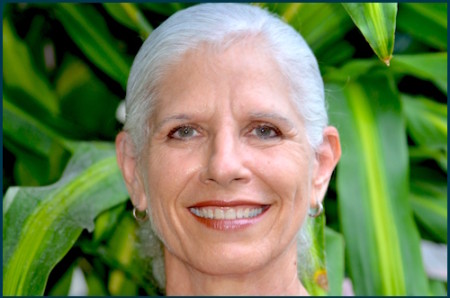
Headlining the all-star line-up of international keynote speakers is award-winning ornithologist Professor Lourdes Mugica Valdés of the University of Havana. Dr. Mugica will discuss her three decades of work on Cuba’s aquatic birds and their wetland habitats conducted with the University’s Bird Ecology Group.
Dr. Hiram González will present the work of Cuba’s Institute of Ecology and Systematics group on bird migration. Cuba is an incredibly important stopover and wintering site for migratory birds and the Cuban government has set up an impressive network of protected areas to conserve biodiversity, including Cuba’s 26 endemic bird species. As more and more tourists and birders flock to Cuba, however, there is more to be done with international partners to ensure that as many important habitats as possible are not destroyed for development.
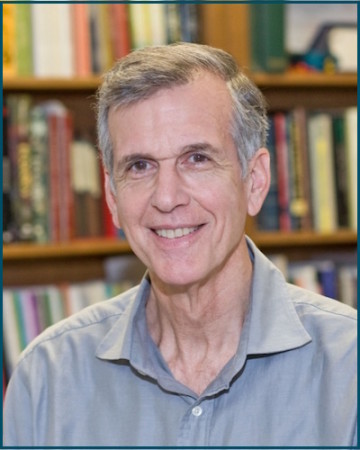
Dr. Robert Ricklefs, Ornithologist and Ecologist and Curators’ Professor of Biology at the University of Missouri, St. Louis, will give a talk focusing on the conference theme of diversity, highlighting how the Caribbean is a global hotspot for birds. He will provide an overview of the evolutionary history of Caribbean birds, island biogeography, and host-parasite evolution (i.e., birds and malaria), using his own research in the Caribbean as well as others, to illustrate how populations expand(which may lead to the formation of new species), and decline over time. He will show how understanding genetic differences between avian populations also informs us about evolutionary uniqueness of island birds and can help us to develop conservation programs.
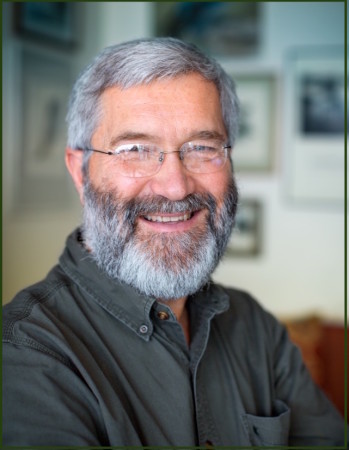
Cornell University’s Professor of Ecology and Evolutionary Biology, Dr. David W. Winkler, will talk about his comparative research on swallows in the genus Tachycineta with partners throughout the Western Hemisphere. He will also share the work he is doing with engineers to develop new technologies for tracking bids and discovering more about their lives, including very lightweight, long-lasting radio tags with ever-expanding capabilities.
Conservation issues are always high on the agenda, and Dr. Nicasio Viña Dávila, Technical Coordinator of the Caribbean Biological Corridor of the United Nations Environment Programme, will present his perspective on those burning issues directly impacting conservation in the Caribbean.
Dominican Republic-based consultant Ms. Leida Buglass, who is Secretary for the International Union for the Conservation of Nature (IUCN) Caribbean Regional Committee, will talk about how important it is to engage with partners in civil society to advance bird and habitat conservation, including case studies and lessons learned from many years of community work.
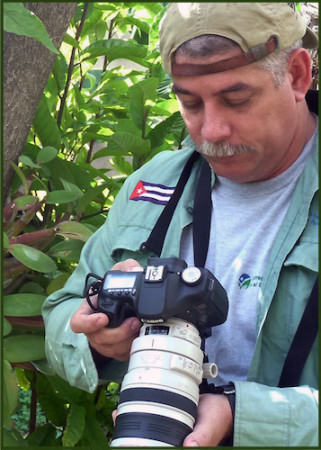
And there’s more. Informative sessions and training workshops include promoting sustainable bird tourism and updates on the Caribbean Birding Trail, bird education, the use of media to promote conservation issues, the state of Caribbean forest endemic birds, ecology of migrants, and many more.
There will also be a special Cuba Day, where local ornithologists will share the work they are doing to study and conserve the island’s rich bird life and habitats. There is much to learn and enjoy!
For additional information and registration information, visit the meeting website here. Read more about the conference here and other speakers and sessions here.
Thank you so much to the generous sponsors supporting our conference!
